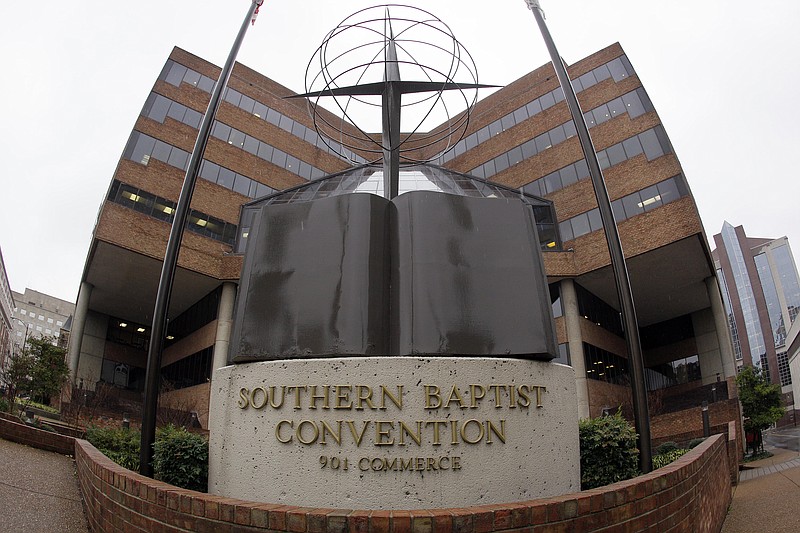NASHVILLE, Tenn. (AP) - Some Southern Baptists worry their denomination's name still carries the stigma of a 19th century split with northern Baptists over slavery. Others who fought hard to build the brand and its conservative theology and politics don't want to see it go.
So the idea to add the description of "Great Commission Baptists" to the name of the Southern Baptist Convention might be a compromise that excites almost none of the 16 million who make up the nation's largest Protestant denomination.
"It's not clear-cut. We can't fully criticize or fully celebrate," said Jonathan Merritt, a faith and culture writer and young minister at Cross Pointe Church near Atlanta. He wanted a new legal name.
"I serve in a big, multiethnic church here in Atlanta, and as late as last Sunday there was an African-American couple that said when they found out we were a Southern Baptist church, they almost didn't join," he said.
The "Great Commission" description endorsed by the SBC's executive committee on Tuesday would be strictly optional. It still must be voted on by delegates at the annual convention this summer. Southern Baptist churches are independent, and many of them don't have "Southern" in their names anyway.
Supporters of the "Great Commission" name argue it would offer an official identity for churches trying to spread the Gospel to diverse groups of people outside the South and worldwide.
Some conservative church members don't even want the option: Wiley Drake, pastor of First Southern Baptist Church in Buena Park, Calif., vowed to fight even an alternate name.
"There are certain things you ought not to compromise on," he said.
Others, like the Rev. Joseph Lyles, said the alternative name could help in reaching out to African-Americans in particular. He leads the Fort Foote Baptist Church in Fort Washington, Md., and is a former president of the SBC's African-American Fellowship.
"Sometimes among some other African-American pastors, they find out you're a Southern Baptist and they look at you like, "You're selling us out,'" he said.
But he also worries someone might join a church with the Great Commission Baptist name and then feel tricked when they found out it was a Southern Baptist Church.
And Lyles said the name issue was secondary to another possible event in changing the image and appeal of the faith: African-American pastor Fred Luter Jr. of New Orleans was elected last year to SBC's No. 2 position, first vice-president. Most in that post have gone on to become president.
If Luter is elected president, he would be the first black leader of a denomination that has been predominately white for much of its history, but is beginning to show more diversity.
"If that happens, to me it would be more significant than a name change," Lyles said. "It would be a historic moment."
The notion of changing the Southern Baptist name is not new: It was first proposed in 1903 and has been unsuccessfully brought up more than a dozen times since. The fact that membership and baptisms are declining gives it new urgency.
That's why Boston University Sociology of Religion Professor Nancy Ammerman thinks the new name is an odd choice. The "Great Commission" refers to Matthew 28:16-20, in which Jesus instructs his disciples at Galilee to "Therefore go and make disciples of all nations, baptizing them in the name of the Father and of the Son and of the Holy Spirit."
Ammerman said the biblical reference was too unfamiliar to help bring in new members.
"Only someone who is already an insider is going to know what that refers to," she said. ".... It strikes me as exactly opposite of the way I thought they would go."
The optional name probably has a better chance of succeeding at the convention, where past proposals for a legal name change have failed.
Supporters will still have to win over people like Wilford Dorroh, a 78-year-old retired power plant worker in western Kentucky who has attended a Southern Baptist church in Central City since 1962.
Dorroh calls himself a "real strong conservative" and said he heard the news of the new name on Tuesday.
"I'm against it because it's a tradition that I think we need to keep," he said. "There's people who don't like us because of the name. Well, if they didn't like us because of the name, they wouldn't like us because of something else. So I'm not in favor of trying to satisfy everybody who don't like us. I'm in favor of keeping what we got."

